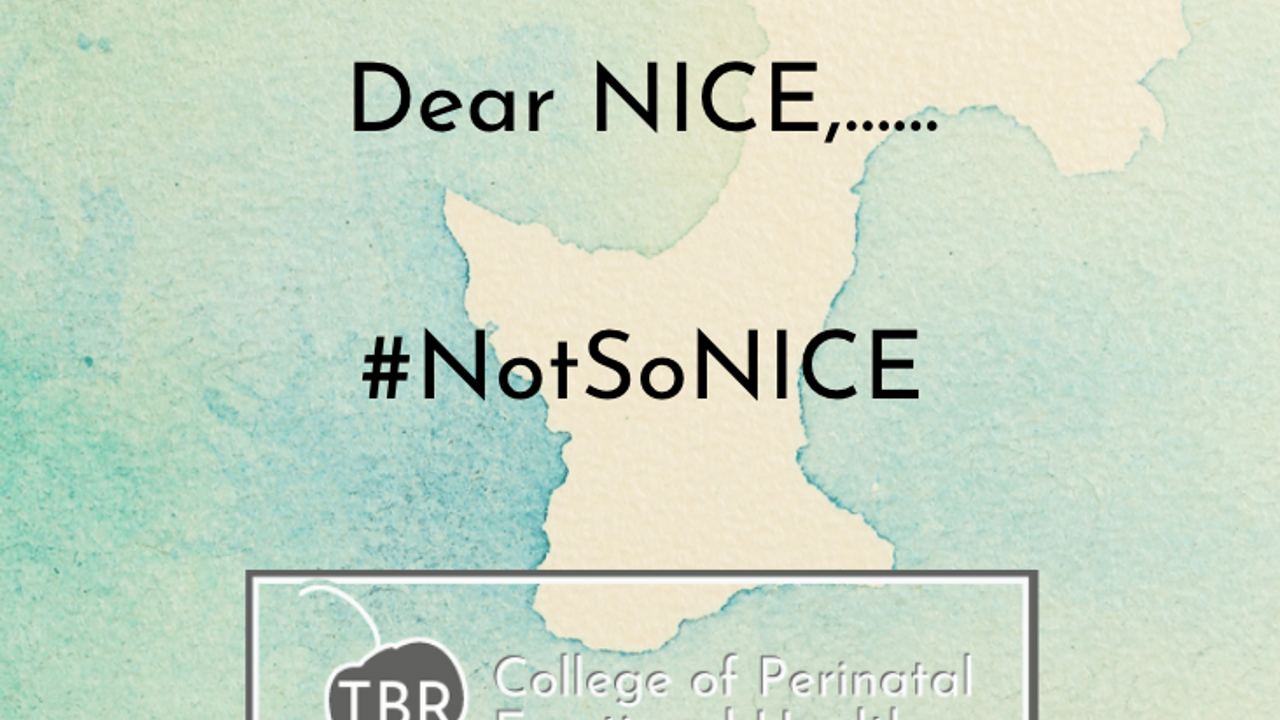Dear NICE,
Jul 09, 2021
Dear NICE,
As a perinatal professional who has dedicated the last 10 years of my career to supporting parents' recovery from traumatic birth experiences I am extremely concerned to see that NICE will soon be issuing a guideline of induction at 39 weeks for all black and brown women.
Is this really the best way to lower the increased risk of maternal mortalities among black and brown women and their babies?
I frequently listen to parents who have been coerced with fear tactics into having an induction and they so often feel dehumanised, unheard and uncared for by the end of the process. This kind of birth trauma leaves lots of unseen wounds that continue to hurt long after parents have been discharged from maternity care. Parents feel guilty when their induction leads to other risky interventions such as assisted deliveries and emergency c sections
Many perhaps wonder why the MBRACCE report found that black women are 4 times more likely to die as a result of childbirth – this proposed new NICE guideline illustrates it perfectly why. Healthcare culture that treats black women as inconsequential, unimportant and relegates ‘care’ to ‘management’ of their birth, their body and their babies is why.
To make any impact on the MBRACCE findings there needs to be more willingness to look at the unconscious racial bias that contributes to poorer outcomes for black and brown women using maternity services.
If we are to make birth safer for black and brown women then we need to begin by caring more about them as individuals not less about them as an entire race automatically marked for a potentially traumatizing intervention. Birthing black and brown women are not a problem to be fixed or managed with induction.
This proposal to induce all black and brown mothers at 39 weeks is really indicative of our maternity system’s inclination to pathologise all women’s bodies rather than consider whether the policy, process and protocol of the system is to blame for poorer outcomes. To propose induction is to propose that it is black bodies that are at fault for their poorer outcomes. It is at best lazy and uninformed thinking about the problem but at worst it is racist.
From my perspective of supporting 1000s of traumatised parents over the last decade I frequently have witnessed the after effects that interventions like induction have on parents and their families. Often blighted by trauma symptoms, struggling with lasting anxiety, low mood and other mental health problems that the maternity system never gets to see.
For years we have put up with a healthcare system that frequently says women’s health is unimportant but now we have the sad statistic that black and brown women’s health is even less important than their white sisters. It is this paternalistic attitude towards women’s health that needs to change if we are ever to reduce the shameful statistic 4 times more likely.
Yours sincerely, Alex.
Alexandra Heath
Head of TBR College of Perinatal Emotional Health
Clinical Hypnotherapist
Author of Recovering from a traumatic birth: A practical guide
Founder of Traumatic Birth Recovery
For parents: www.traumaticbirthrecovery.com
For professionals: www.tbrcollege.com

